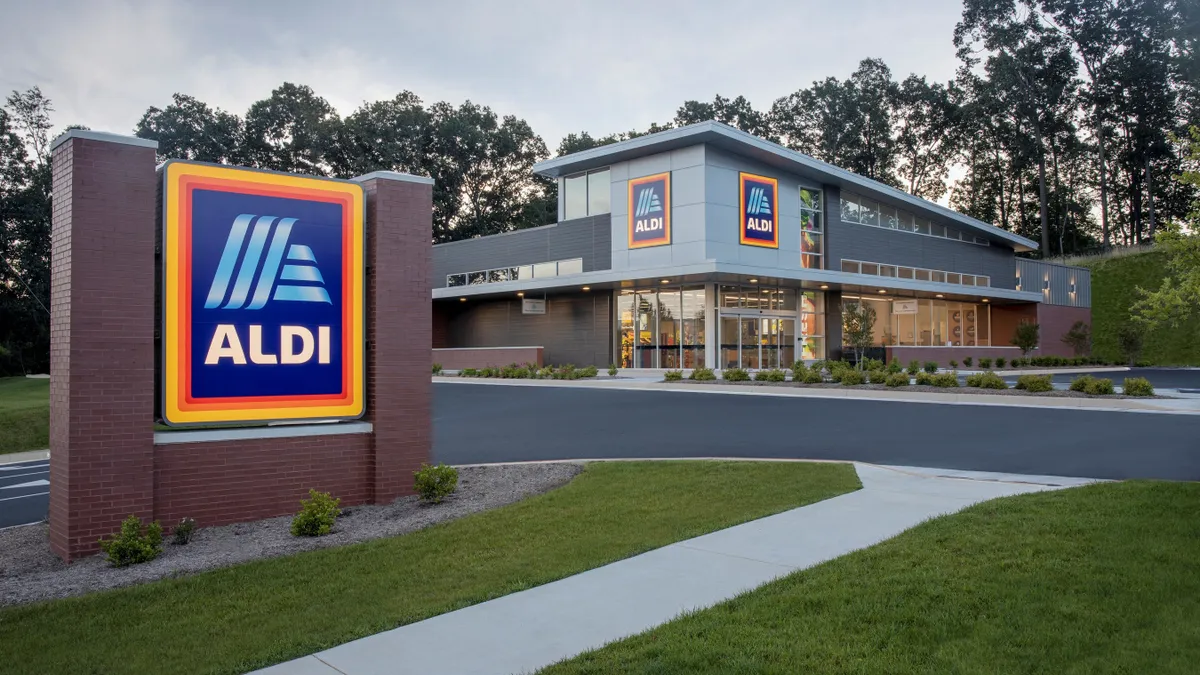Dive Brief:
- Aldi South Group, parent of Aldi U.S., plans to attain net-zero greenhouse gas emissions across its operations by 2050, the German grocery store operator said Thursday.
- As part of its efforts, Aldi will work with partners to fund on-farm pilot programs “with a heightened focus on its dairy and beef supply chains,” the grocer said.
- Aldi is highlighting steps it is taking to address climate change as the company moves forward with plans to significantly expand its presence in the U.S. during the next few years.
Dive Insight:
Aldi’s emissions-reduction targets are some of the first in the grocery industry to be validated by the Science Based Targets initiative. The company is looking to become “the most sustainable grocer in the country” by working to cut emissions across its supply chain, including at the farm level.
Jason Hart, CEO of Aldi U.S., said in a statement that the company’s heavy focus on private label products strengthen its ability to operate sustainably by allowing it to “work more directly” with suppliers to bring down emissions.
Aldi South said its goals include cutting its Scope 1 and Scope 2 emissions by 90% compared with 2022 levels. Scope 1 emissions refer to emissions a company generates directly through its own operations, while Scope 2 emissions are those a company is linked to indirectly through activities like buying electricity.
The grocery company also plans to reduce its Scope 3 emissions — which comprise emissions from companies that are part of its value chain — by 90% by 2050 compared with levels in 2022. Aldi added that it plans to cut Scope 1 FLAG emissions by 72% by 2050 from a 2021 base year, and claims it is one of the first retailers to lay out specific goals for reducing FLAG emissions.
Aldi said it plans to reach its emissions-reduction goals by taking a variety of steps to work with companies in its supply chain, which it said are responsible for most of its emissions. The grocery store operator said those measures would include working with nongovernmental organizations and funding pilot programs on farms.
The company has committed to no deforestation across commodities including palm oil, cocoa, coffee, beef and wood fiber-based products, by the end of 2025. In addition, Aldi plans to work with third-party logistics companies on efforts to use alternative fuels and electric trucks.
“We do things differently and sustainability is no exception,” Hart said in a statement. “For instance, because our stores are stocked with 90% ALDI-exclusive brands, we can work more directly with our suppliers on emissions reductions.”
Sarah Zimmerman contributed to this story.












